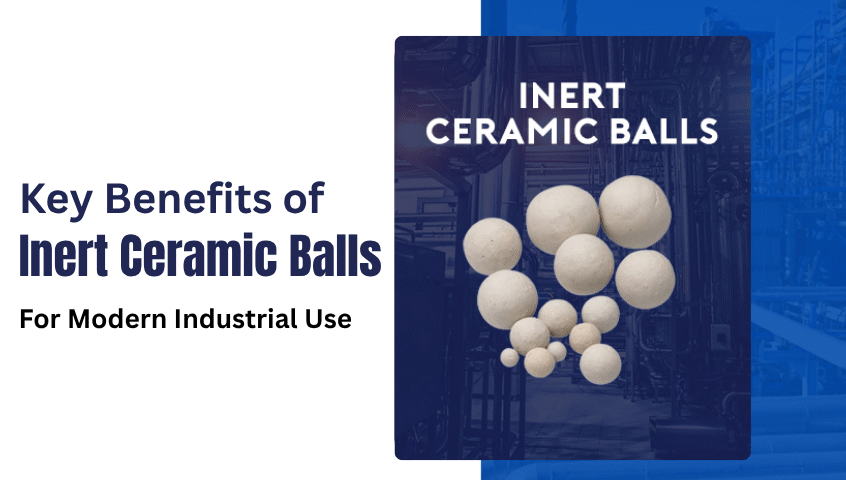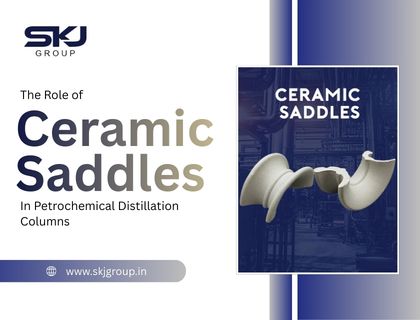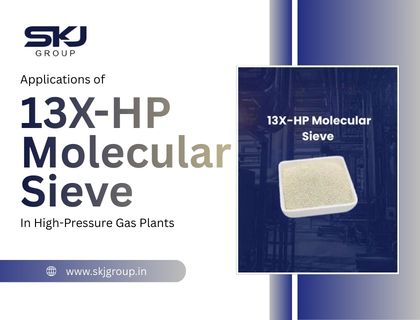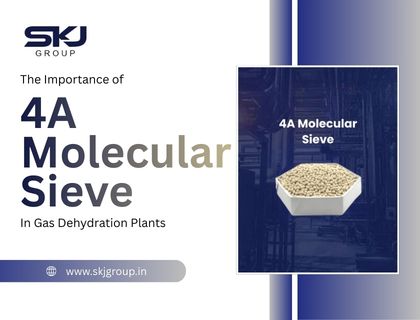Key Benefits of Inert Ceramic Balls for Modern Industrial Use

How Premium Plywood Ensures Long-Term Durability
November 18, 2025
The Role of PP Pall Rings in Sustainable Industrial Processes
November 20, 2025If you work in chemical, petrochemical, fertilizer, or oil and gas industries, you already know how crucial it is to maintain stable reactor performance and reduce equipment downtime. Many plants face common issues such as corrosion inside towers, uneven catalyst distribution, high pressure drops, and frequent replacement of support media. One solution that consistently stands out is the use of Ceramic Balls.
In this detailed guide, you will learn why Inert Ceramic Balls, especially High Alumina Ceramic Balls in Mandsaur, are becoming indispensable for modern industrial systems. If you’re searching for a reliable inert ceramic balls manufacturer, ceramic balls manufacturers in India, or a trusted ceramic balls manufacturer near me, this article will help you make an informed decision.
What Are Inert Ceramic Balls and Why Are They Important?
Inert ceramic balls are high-strength, thermally stable spheres used as support media inside reactors, towers, filters, and absorption systems. They help protect catalysts, improve flow distribution, reduce pressure drop, and enhance overall process efficiency.
Ceramic Balls are important because they increase reactor stability, provide chemical resistance, support catalyst beds, and reduce long-term maintenance costs.
How Do Ceramic Balls Improve Catalyst Efficiency?
Ceramic Balls serve as protective and supportive layers inside reactors. They help distribute gas and liquid evenly, prevent catalyst damage, and maintain proper process flow. This improves catalyst activity and extends its service life.
Applications include reformers, hydrocrackers, desulfurization units, ammonia plants, and methanol units.
Why Are High Alumina Ceramic Balls Essential for High-Temperature Operations?
High Alumina Ceramic Balls are engineered to withstand extreme heat. Their high alumina content offers enhanced strength and resistance to thermal shock. This makes them suitable for reactors operating at very high temperatures.
Industries in regions like Mandsaur prefer High Alumina Ceramic Balls in Mandsaur because they offer durability and consistent performance.
How Do Ceramic Balls Reduce Operational Costs?
Ceramic Balls are long-lasting and do not require frequent replacement. Their durability reduces shutdown frequency, which lowers maintenance and operating costs. They also prevent damage to catalysts and reactors, extending the lifespan of equipment.
How Do Inert Ceramic Balls Enhance Chemical Resistance?
Inert Ceramic Balls do not react with acids, alkalis, solvents, or corrosive chemicals. This stability makes them ideal for chemical industries where harsh environments are common. Many ceramic balls manufacturers in India specialize in producing chemically resistant variants for these applications.
What Industries Commonly Use Inert Ceramic Balls?
Ceramic Balls are used in:
- Petrochemical plants
- Chemical reactors
- Fertilizer manufacturing units
- Oil and gas refineries
- Water treatment facilities
- Gas absorption towers
- Distillation units
- Thermal insulation systems
These industries require stable and durable support media, making Inert Ceramic Balls in Mandsaur a preferred choice for installations across India.
How to Choose the Right Ceramic Balls Manufacturer?
Selecting the right manufacturer helps ensure quality, long-term performance, and safety. Consider the following:
- Manufacturers with ISO certification
- High alumina content options
- Reliable quality testing
- Proven industry experience
- Custom sizes and bulk supply
- Transparent technical data sheets
- Proximity for fast delivery
If you search for a ceramic balls manufacturer near me, choose suppliers with strong industry ratings and proven client history.
Frequently Asked Questions (FAQ)
1. What are Ceramic Balls made of?
Ceramic Balls are typically made from alumina, clay, and other heat-resistant minerals. High Alumina Ceramic Balls contain a higher percentage of alumina for enhanced performance.
2. What sizes are Ceramic Balls available in?
Common sizes range from 3 mm to 50 mm, but custom sizes may be available depending on the manufacturer.
3. How long do Inert Ceramic Balls last?
Their lifespan depends on usage conditions but generally ranges from several years to more than a decade in stable environments.
4. Can Ceramic Balls be reused?
In some cases, yes. If Ceramic Balls remain structurally intact, they can be cleaned and reused. However, industries with high-quality standards often prefer new media each cycle.
5. Are Ceramic Balls safe for chemical applications?
Yes. Ceramic Balls are chemically inert and stable, making them safe for handling acids, alkalis, solvents, and other corrosive agents.
Conclusion
Ceramic Balls play a critical role in improving efficiency, stability, and longevity in various industrial systems. Their ability to withstand high temperatures, resist chemical corrosion, reduce maintenance costs, and protect catalysts makes them an essential component for modern industries. Whether you operate a chemical plant, refinery, fertilizer unit, or water treatment system, investing in high-quality Inert Ceramic Balls can significantly enhance your operational performance.
If you are looking for reliable supply options, especially Inert Ceramic Balls in Mandsaur or trustworthy ceramic balls manufacturers in India, ensure that you choose certified, experienced producers who meet international quality standards.




